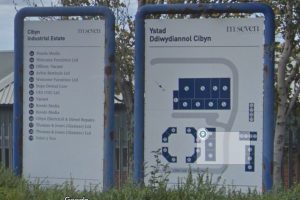CONCERNS the number of drug driving offences in North Wales has now overtaken drink driving were raised at a police meeting this week.
Now North Wales Crime Commissioner Andy Dunbobbin says a change in approach is needed to tackle the rise in driving under the influence of drugs.
The matter was discussed at this week’s North Wales Police and Crime Panel at Conwy ’s Bodlondeb HQ.
North Wales Police Sgt Liam Ho, of the newly-formed roads crime unit, revealed 204 drink drivers had been arrested in the last 12 months.
But this was compared to 272 drug drivers who were also arrested in the same period.
Sgt Ho said police had issued over two and a half thousand traffic offence reports, and that the unit’s work had resulted in 890 people being summoned to court.
Sgt Ho explained that the unit’s operations were based on the fatal five road offences of drink driving, drug driving, careless or dangerous driving, not using seat belts, and using mobile phones at the wheel.
But Cllr Nigel Williams asked what police were doing about the rise in drug driving.
“Drink driving, obviously now, it’s been deemed socially unacceptable by most,” he said.
“People don’t actually go to the pub and have a drink and drive home. The majority of people don’t.
“My concern, looking at the stats as well, is drug driving. I feel there isn’t the same stigma to drug driving as drink driving.
“What are we actually doing to hammer home the point about drug driving?”
Cllr Williams added: “If somebody goes to the pub and has a few drinks, a few pints, you know you are going to be over the limit.
“But if somebody takes drugs, hours later they might think they’re OK and feel they are OK to drive.”
Mr Dunbobbin said plans would be put in place to deal with the issue.
“I went out with the force over the drink driving campaign, and when I saw that shift in behaviour, it really concerned me that drug driving is on the increase,” he said.
“I think that will be built into the plans for the (drink driving) campaign this forthcoming year as well.”
He added: “It is certainly something that is on our radar, and we will be acting proportionally to what the data is illustrating to us.”
Sgt Ho was also asked about the potential for drugs to stay in the human body far longer than alcohol.
Sgt Ho agreed that drugs often could remain in the system for longer.
“It goes on the previous point before about this sort of social acceptance of drink driving and drug driving,” he said.
“I think with drink driving, the legislation has been around for a lot longer than drug driving.
“Alcohol is controlled first and foremost.
“People know how much a percentage a drink is, and they know how much they drink of it, so you’ve got a relative idea – obviously there are differences in metabolism – of whether you will be over the limit or not.
“Drug driving is (with) an uncontrolled substance, isn’t it?
“You don’t know how much cocaine you’ve taken.
“You don’t know what the quality of it is, and how much it will then break down in your system.
“Unlike drink driving (in which) you can be relatively safe, depending on how much you drink within 24 hours. But with drug driving it does stay in your system for a significantly longer time period.”
He added: “When I do arrest drug drivers, which is quite frequently, the first thing they’ll ask me is ‘when am I safe to drive?’ I can’t give them an answer because of the fact there are so many variables in comparison to drink driving.
“We do post a lot about it on social media, and we do obviously raise that awareness, but you are right there probably will be capacity to have a specific education programme.”



















